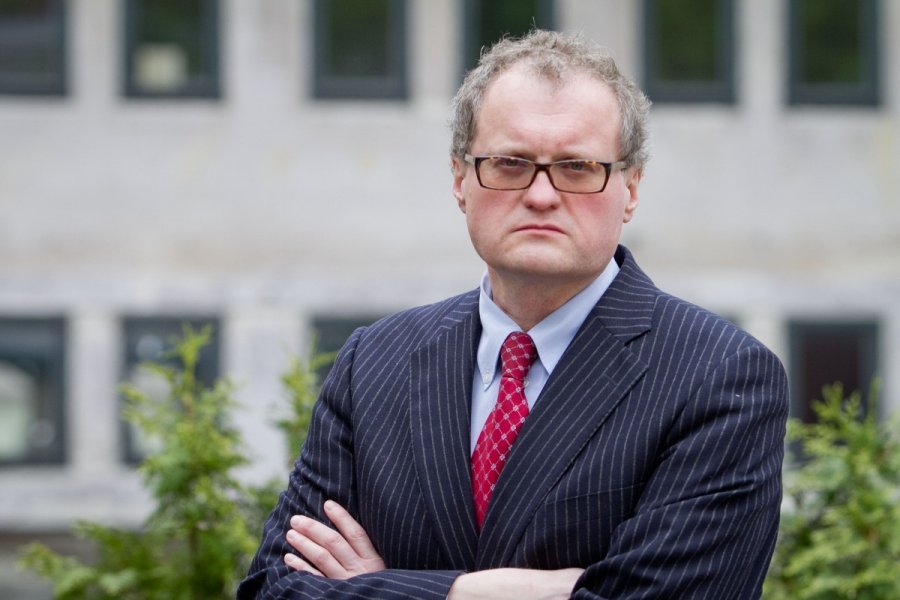
Neither War, Nor Peace
 Photo by DELFI (c)
Photo by DELFI (c)
Uncertainty scars Europe
Western journalists used to tease the “Sovietologists” and “Kremlinologists”, as they were called in Soviet era. And they had a good reason to do so – the major share of their conclusions and generalizations were laughably false. And it must have come as no surprise.
A self-sufficient world of Soviet politics, full of suspicion, paranoia and a total lack of mutual trust has called into life a special sort of art for deciphering the symbols of power and the vectors of loyalty in the Kremlin. Those who stood closest to the dearly missed leader during his last public appearance and those who said their last farewells with exaggerated pomposity were anointed by Kremlinologists as heirs apparent to the party’s political power and its considerable wealth.
The dark art of Kremlinology seems to be making a comeback.
We can only marvel at the impreciseness of predictions on the war in Ukraine and the unfolding crisis between Russia and the West it has triggered.
It’s as if we have travelled back in time: Russian politics has become just as hermetic and unpredictable as they were in those dark Soviet days.
And the media is increasingly turning into an industry of fear.
By repeating ad nauseam that the West is weak, Vladimir Putin is strong, the EU is going to fall apart any day, or that the demise of Ukraine is inevitable, the commentators demonstrate their own fears and their own lack of confidence in our ability to defend the liberal values and democratic politics. In doing so, not only do they pervert reality, but they also pave the way to panic and defeatism – two things that can neither solve our ethical dilemmas, nor drag us out of the painful political quagmire and economic dead-end.
According to the logic of professional fear-mongers, we should be trained to be fearful. Those who fear more or who are skilled at conveying and transmitting fear affect public opinion. As Austrian philosopher Günther Anders wrote in 1960, “have no fear of being afraid, have courage to fear. Have courage to scare others. Communicate to your neighbors the fear no smaller than yours.” This phenomenon, it seems, is deeply engrained. French philosopher Pascal Brukner argued that this phenomenon of “fanaticism of apocalypse” robs us of the ability to make rational decisions, by transforming us into “fearful children.”
The commentators trying to fight for our wounded sense of self-confidence and clear-headed analysis are few and far between. If my country, Lithuania, managed to counter the mass psychosis and to resist fear and panic during Russian blackmail and provocations, it is mainly thanks to writers like Andrey Piontkovsky, who consistently offered a cool-headed, if not scathing, analysis of our path and choices.
But even those writers, with their spark of enlightenment and their analytical clarity might not know one thing – in our battle against Putinism, we risk ending up neither on the winning, nor losing side. Putin and his grotesque regime are doomed to failure, but we might be asked to pay the horrible price: to live in limbo between war and peace.
The low intensity conflicts and oppression that Putin’s regime has mastered seem to be the only certainty in our awfully uncertain, unsafe and insecure world.
We are at the peril of being accustomed to violations of human rights and military conflicts as part of our daily reality, provided they do not touch us directly.
The unprecedented degree of uncertainty in foreign affairs and world politics is the only reason that allows a rogue state to manufacture a peace-keeping mission or to allow Vladimir Putin to appear as a facilitator of the peace process in the country against which he has waged a war. This grotesque reality of living in neither war nor peace is our price for uncertainty.
Leonidas Donskis is a Lithuanian philosopher, historian of ideas, and writer. A former Member of the European Parliament (2009–2014). Donskis has written and edited over forty books, seventeen of them in English. His works have been published in eighteen languages. He serves now as Professor of Politics at Vytautas Magnus University in Kaunas, Lithuania. Donskis holds an Honorary Degree of Doctor of Letters from the University of Bradford, the UK (2011), and an Honorary Degree of Doctor Honoris Causa from Valahia University in Târgovişte, Romania (2014).